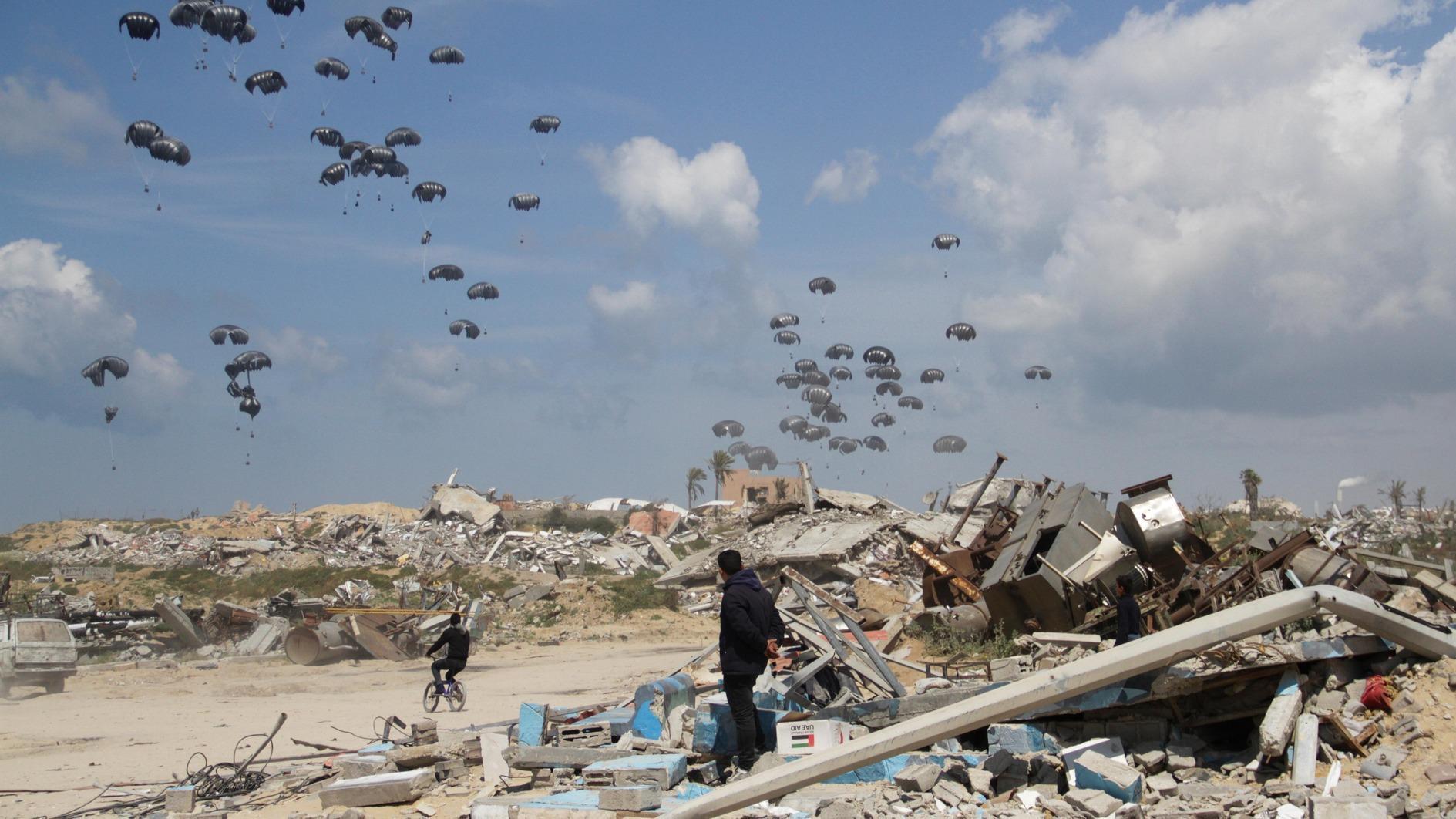
The world's top court ordered Israel Thursday to "ensure urgent humanitarian assistance" reaches Gazans, as warnings multiplied of imminent famine after nearly six months of relentless conflict.
Heavy fighting and sustained bombardment again rocked the territory despite the U.N. Security Council's adoption of a resolution earlier this week demanding an "immediate ceasefire".
"Israel shall... take all necessary and effective measures to ensure, without delay... the unhindered provision... of urgently needed basic services and humanitarian assistance," the International Court of Justice said in its ruling.
This included food, water, electricity, fuel, shelter, clothing, hygiene and sanitation requirements, as well as medical supplies and medical care to Palestinians throughout Gaza, its judges said.
"Palestinians in Gaza are no longer facing only a risk of famine, but... famine is setting in," the Hague-based court said.
South Africa had asked the court to bolster a previous order it issued in January for Israel to allow aid into Gaza to take account of the further deterioration of the situation on the ground.
The United Nations has warned that famine "is ever closer to becoming a reality in northern Gaza", and said Gaza's health system is collapsing "due to ongoing hostilities and access constraints".
While the war has turned much of the territory into a devastated wasteland, Israel has also imposed a siege on its 2.4 million people, eased only by occasional aid deliveries.
With clean water also scarce, Gazans were queueing to fill plastic containers from a tank west of Rafah city.
"We have to queue for everything," said one displaced woman, Maram Abu Amra. "We walk for an hour in total. Sometimes, we return empty-handed, without water."
Fighting around Gaza hospitals
Heavy fighting and sustained bombardments have continued to rock the territory despite the U.N. Security Council's adoption of a resolution earlier this week calling for an "immediate ceasefire".
"Dozens" were killed overnight, including 12 in a home in southern city Rafah, the health ministry in the Hamas-run territory said Friday.
The war has turned much of the territory into a wasteland and shattered the health system.
The Israeli military (IDF) has conducted sieges on three major hospitals, accusing Hamas and Islamic Jihad of hiding inside and using patients, medical staff and displaced people for cover -- charges the Palestinian militant groups have denied.
Israel said its soldiers near the Al-Amal Hospital in Gaza's main southern city of Khan Yunis carried out "targeted raids on terrorist infrastructure ... and are eliminating dozens of terrorists using precise fire in close-quarters combat and with air support".
They had also "apprehended dozens of terrorists in the area who were transferred for interrogations", the army added.
Israeli tanks and armoured vehicles have also massed around another Khan Yunis health facility, the Nasser Hospital, but have not yet staged a full-scale raid, the Gaza health ministry said.
Fighting has also rocked the Gaza City district around Al-Shifa Hospital, the territory's biggest, where the army says it has killed about 200 militants since early last week.
The war began with Hamas's Oct. 7 attack that resulted in about 1,160 deaths in Israel, mostly civilians, according to an AFP tally based on Israeli official figures.
The militants also took about 250 hostages. Israel says about 130 captives remain in Gaza, including 34 presumed dead.
Israel's retaliatory campaign has killed at least 32,552 people, mostly women and children, according to Gaza's health ministry.
Regional impacts
Since the start of the war, Israel has also exchanged near-daily fire with Hamas ally Hezbollah, an escalation that has sparked fears of a wider, regional conflict.
On Friday before dawn, an Israeli strike near the international airport in Syria's Aleppo killed at least 36 soldiers, according to a U.K.-based war monitor.
The Syrian Observatory for Human Rights said the attack was targeting "rockets depots belonging to Lebanese group Hezbollah".
Pushing to staunch any broader spillover, mediators from the United States, Egypt and Qatar have tried to secure a truce, but those talks appear deadlocked for now.
Washington, Israel's main backer, angered Prime Minister Benjamin Netanyahu's administration this week by abstaining from a UN Security Council vote on a resolution calling for an "immediate ceasefire".
Afterwards, Israel cancelled a meeting to discuss U.S. concerns over its possible operation in Rafah, before later backtracking and requesting a rescheduling.
U.S. officials say they want to present Israel with an alternative plan for Rafah, focused on striking Hamas targets while limiting civilian casualties in a city where 1.5 million Palestinians are sheltering.
Washington has also raised the issue of how Gaza will be ruled after the war and suggested a future role for the Palestinian Authority, the body that exercises limited powers in parts of the Israeli-occupied West Bank.
On Thursday, Palestinian president Mahmud Abbas approved the new government of prime minister Mohammed Mustafa.
Mustafa said his cabinet "will work on formulating visions to reunify the institutions, including assuming responsibility for Gaza".
Hamas took over from Abbas's government in the Gaza Strip in 2007.